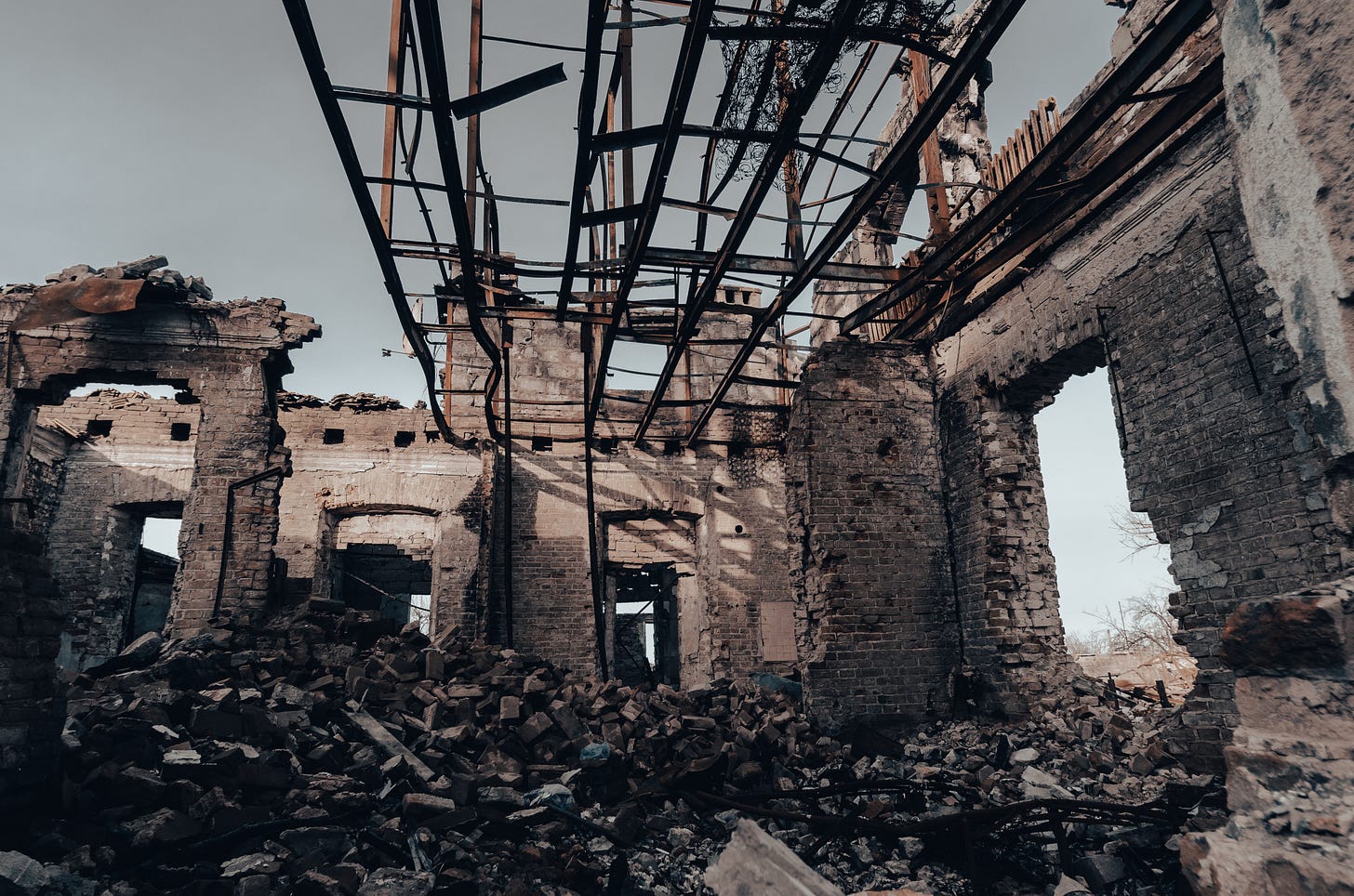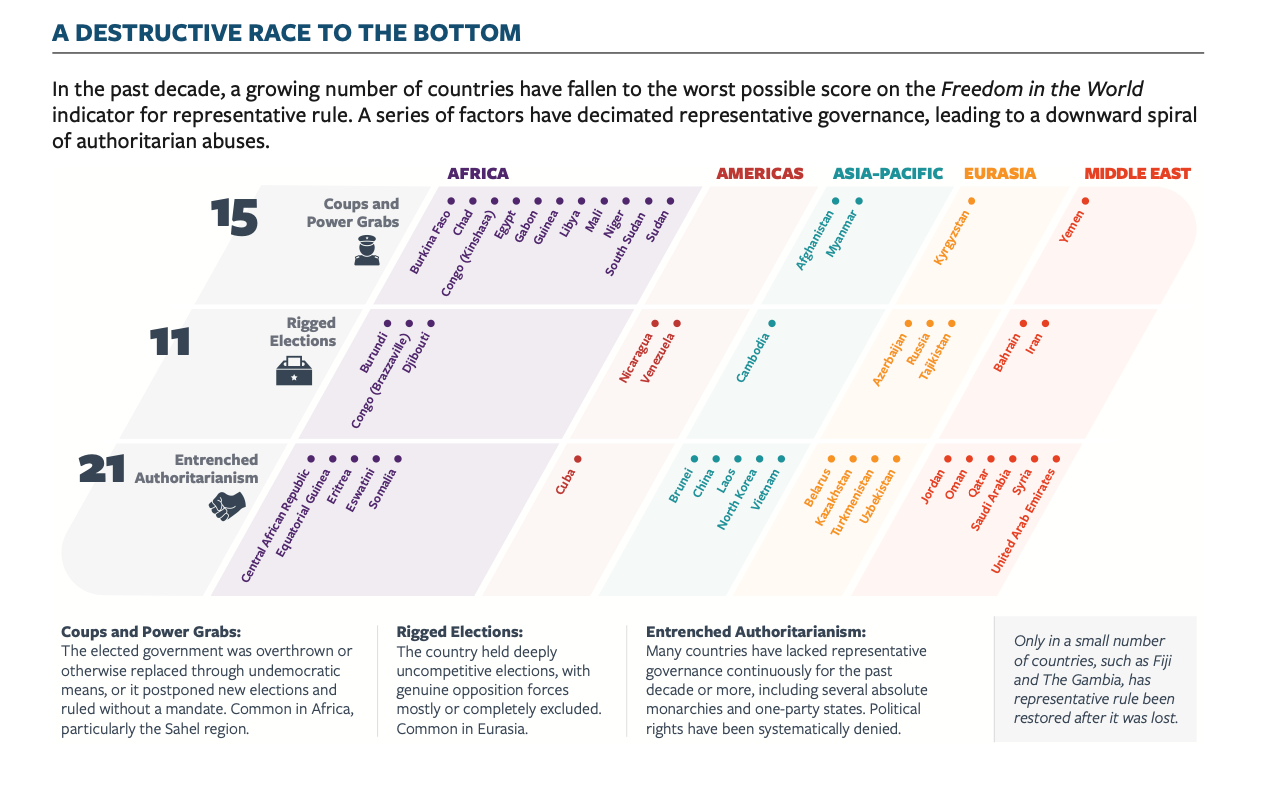"We must continue to defend democracy"
Canada in the real world: Don't ask
We have serious things to discuss today, but first I’m afraid I must update you on the way Canada’s government responds to simple questions. I’ll keep this part brief. On the day of Alexei Navalny’s murder, Justin Trudeau sent out a tweet:
This led me, very much against my better judgment, to send an email to the Prime Minister’s Office:
“The PM wrote today about the necessity of tirelessly promoting democracy. The Liberal Party promised a "Centre for the Promotion of Peace, Order and Good Government" in the elections of 2019 and 2021, and the PM repeated the promise at President Biden's first Democracy Summit in autumn 2021. There was a secretariat established at GAC in 2022 and, as far as I can ascertain, it ended its work last summer.
“Where's the democracy promotion agency? Any plans to announce it?”
The PMO handed off to GAC, which stands for “DFAIT.” Sorry, Ottawa joke. Yesterday, 12 days after my query, I received this answer from the department, which I reproduce here in its entirety:
Canada remains steadfast to advance and protect democracy.
This commitment was outlined in two mandate letters and reiterated at the Summits for Democracy.
Canada has been a staunch and vocal advocate for democratic principles, the rule of law, and the protection of human rights.
In 2021/2022 alone, Canada contributed $301M towards inclusive governance globally, with $151M specifically towards democracy initiatives.
Canada will continue to collaborate alongside international partners, including through relevant multilateral bodies to promote and defend democracy, human rights and the rule of law.
I’m never sure what to do with this sort of thing. Note that, as is very often the case, my email to the PMO gives them substantially more information than I received in return. Basically I briefed the government on its own policy, and it only took one of me 10 minutes to do it.
On the first bullet point in the department’s response, see Brian Kelcey’s classic Twitter thread on government statements that begin with odes to what the government — every government, everywhere — is “committed” to. Where’s the thing you promised three times to do? Know this, good sir: we will not rest until good things happen.
By the time the response crawls across the finish line like a collapsing marathon runner, nothing resembling a point remains. Are you telling me the total amount of your “inclusive governance” spending from two years ago because you’ve decided you don’t need to do more? Is the reference to “relevant multilateral bodies” — a great band, though I think they went downhill after they changed drummers — an admission that the world doesn’t need a specifically Canadian democracy-promoting thing any more?
Or will they announce the thing they promised three times tomorrow, and think of me and have a larf?
Who can say! Truth is a cloud! Enjoy the sound of your brain getting sucked out through your nose!
I’m not sure whether the 60 or 80 people who spent half a month crafting this thing need to hear it, but just FYI, I would greatly have preferred somebody to write or call me on February 16 with something like “We’re not going to answer that one, Paul,” or “That’s up in air,” or “When we have something to announce, we’ll let you know,” or even “Shove a skateboard up your ass,” because at least then nobody would be pretending they had furnished me with an answer. I guess if contempt is on the menu, I prefer that mine be served neat.
Meanwhile…
Down in Washington, the good folks at Freedom House today released their annual Freedom in the World report. This one carries the title “The Mounting Damage of Flawed Elections and Armed Conflict,” and for the 18th consecutive year it reports that global freedom declined last year.
“The breadth and depth of the deterioration were extensive,” the report says. “Political rights and civil liberties were diminished in 52 countries, while only 21 countries made improvements.” After a marked slowing in the general pace of democratic decline in 2022, this report marks a return to a situation where rights and democracy are under threat on multiple fronts.
“Ecuador was downgraded from Free to Partly Free status because its elections were disrupted by violent criminal organizations, which killed several state officials and political candidates. In Cambodia, Guatemala, Poland, Turkey, and Zimbabwe, incumbents tried to control electoral competition, hinder their political opponents, or prevent them from taking power after election day. While Thailand edged over the line from Not Free to Partly Free thanks to more competitive elections, a military-drafted constitution allowed unelected entities to distort the subsequent government-formation process. Military forces also ousted the elected government in Niger, leading to the second-largest score decline of the year, and adding another case to the wave of coups in the Sahel region of Africa that began in 2020.”
I don’t think a single report should be treated as definitive. You can’t take r ankings based on a bunch of indicators to the bank. And I suspect a report that says “Everything’s getting worse” will always get more attention than one that says the opposite. So the incentive for performative despair is there. But Freedom in the World is produced by large teams according to a methodology they’ve been using for 51 years, and certainly the trends it reports match a general mood among people who worry about democratic rights and freedoms. One graphic example snipped from the report:
I’m not sure what one does about an 18-year global decline in democratic rights and freedoms. (I’ve always thought it was significant that the decline, by Freedom House’s reckoning, began during George W. Bush’s Iraq War, when the boldest interventionist instincts of the U.S. were chastened, its allies embarrassed, and its adversaries emboldened. And the net result of the invasion was to deliver Iraq to Iran. I guess I’m saying it was a bad war with lasting consequences.)
I’m sure that Canada couldn’t begin to halt this global trend by itself, no matter who was running its federal government. Multilateralism is baked into Canadian foreign policy because it’s always been obvious our country can’t get much done in the world by itself. But I think the decline in democracy is Canada’s problem because, inevitably, if we don’t work with others to deal with these problems abroad, we’ll deal with them at home when the victims of human-rights abuse come here. Which is why five years ago, somewhere in my last interview with Justin Trudeau — the last I’ll ever get, I suspect — I asked him about Canada’s role in democracy promotion. As I recall, his answer was nervous and not detailed.
I suppose the Liberals could always promise to create a democracy-promotion agency again in the next campaign. Nobody’s keeping track, right?





For an answer that was clearly just copied and pasted from some standing key messages, it’s beyond depressing that it took so long to get it to you. Here’s how this likely went:
1) response was given to the relevant desk officer who then assembled the reply from standing talking point.
2) that was then reviewed by their deputy director and likely sent back to the desk officer to make some minor changes.
3) the now-deputy director-approved version was sent to the director for review.
4) sent back to desk officer to incorporate changes.
5) possibly then sent back up to the deputy director to review before being sent onward to the director, depending on the micromanagerial tendencies of the DD
6) director approves
7) desk officer sends the director-approved lines to their director general, where it could languish for a few days because the higher up the ladder you go, the more things there are being sent for review and approval.
8) director general absolutely makes some changes, sends back to desk officer
9) desk officer incorporates changes.
10) director wants to review before it goes back to DG and notices that the DG changed some of the changes the director had previously made. Desk officer now has to manage this little tizzy that the director has gotten themself into.
11) desk officer sends it up to assistant deputy minister’s office for approval. Rinse and repeat.
12) maybe it even goes to the DM’s office? You’re a Big Name, which gets attention when journalists submit questions.
13) desk officer questions life choices.
Is it any wonder morale at GAC is in the shitter?
"In 2021/2022 alone, Canada contributed $301M towards inclusive governance globally, with $151M specifically towards democracy initiatives."
I would love to learn how that money was spent and what the results were.
However, as our friends at The Line say, this government is just focused on inputs and does not care about outputs. They spent $301,000,000 on a good cause, why do we need any more information?